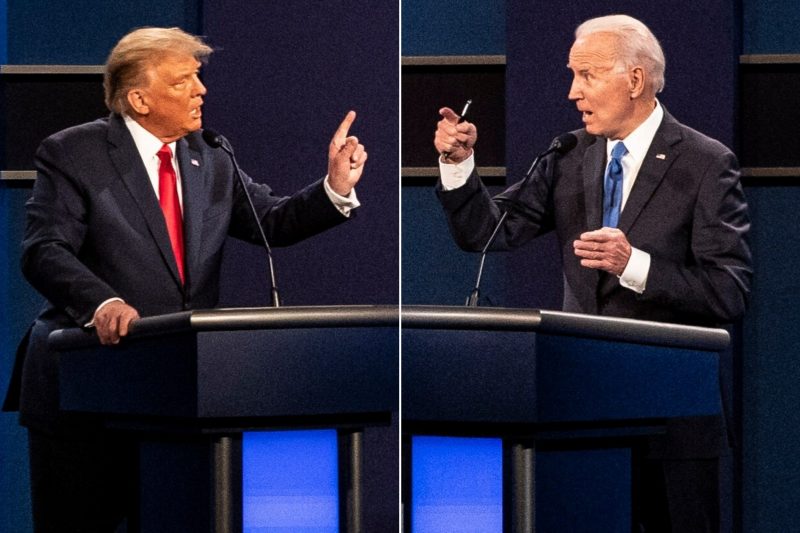The question that demands an answer is why Liz Cheney would do it.
The former Wyoming congresswoman and daughter of conservative bastion Dick Cheney has committed to blocking Donald Trump’s path back to the White House by any means necessary. This was her admitted intent when assuming a leadership role on the House select committee investigating the Jan. 6 attack on the Capitol, and it was manifested this week as she narrated an anti-Trump ad targeting Republican primary voters.
But why?
According to Trump, Cheney staked out this position because Trump was “actively getting our great and beautiful Country out of the ridiculous and costly Endless Wars.” That was his suggestion in mid-2020, after Cheney had begun being more openly critical of his administration. A year before, Trump was celebrating Cheney’s loyalty; now, she had the temerity to criticize him.
Gently — at least until the aftermath of the election when she was quick to demand Trump acknowledge his loss. On Jan. 6, 2021, in his speech before the riot, Trump called out Cheney by name.
“We got to get rid of the weak Congresspeople, the ones that aren’t any good, the Liz Cheneys of the world,” he said. “We got to get rid of them.”
Eventually, his most loyal voters did, ousting Cheney in the Wyoming Republican primary in 2022. By then, Cheney’s fate was sealed: Her opposition to Trump and elevation of his efforts to overturn the 2020 results meant she was a top target of the former president.
So why would she do it?
The obvious answer isn’t that she was frustrated at Trump’s interest in withdrawing from Afghanistan, something he had embraced more forcefully when he was running for office (with Cheney’s support) than he did as president. The obvious answer, instead, is that Cheney viewed Trump as exactly what that ad suggests he is: a danger to American democracy.
Since Trump emerged as the front-runner in the 2016 Republican nominating contest, a small, vocal portion of his own party has declared their fervent opposition to him. The size of this contingent of “never Trump” Republicans waxes and wanes depending on various factors, but it’s ever-present, a group that spent much of 2017 through 2020 uncomfortably allied with the political left. That latter alliance was damaged by the Biden presidency, but Trump’s omnipresence in the political conversation means that “never Trump,” too, has proven enduring.
Even as Trump was locking down his 2020 nomination with the eager assistance of the Republican Party, that contingent made itself heard. It’s a countervailing force, however low-powered, with which President Biden doesn’t have to contend.
On Wednesday, Biden’s campaign released a video showing an (intentionally) wide array of Democrats expressing their immediate support for his reelection — all members of his campaign’s national advisory board. It included former political opponents (like Sens. Cory Booker (D-N.J.) and Elizabeth Warren (D-Mass.)), once-speculated 2024 challengers (California Gov. Gavin Newsom), newly minted congresspeople (Rep. Shontel Brown (D-Ohio)) and members of the party firmament (former House speaker Nancy Pelosi (D-Calif.)). The message was unsubtle: We’re confident in Biden, even if you aren’t.
After all, many Democrats seem not to be. April polling reported by the Associated Press found that only a quarter of Americans wanted Biden to run for president again, including just under half of Democrats. More recently, a poll of Democratic primary voters found that only 6 in 10 supported Biden as the party’s nominee, with conspiracy theorist and famous-last-name-haver Robert Kennedy Jr. scooping up 1 in 5 votes.
Those things are related. Democrats are unexcited about Biden and express that both directly and indirectly. There’s no real challenge posed by Kennedy or 2020-also-ran Marianne Williamson; Democrats who support Kennedy are, in part, choosing a name they know over a president they don’t love.
Importantly, they still say they’d vote for Biden over Trump. In the AP poll, 8 in 10 Democrats said they planned to vote for Biden in the general election should he win the nomination. That’s almost certainly true if his opponent is Trump.
This is also why Biden is not having trouble lining up support — and keeping out viable competitors for the nomination. Democrats broadly, including ambitious ones like Newsom, recognize both that Biden has the benefit of incumbency and that the history of intraparty challenges to incumbent presidents offers warnings about the party’s success in the general election. Ted Kennedy’s challenge to Jimmy Carter in 1980 didn’t do Carter much good. No one wants to be the person who gets the blame for clearing Trump’s path back to the White House.
This brings us back to Cheney. In 2020, the GOP cleared the field for Trump for the same reason, though, of course, Trump went on to lose anyway. In the wake of the Republican Party’s crushing defeat in 2018 and its underperformances in 2020 and 2022, the “never Trump” argument is more robust than it’s ever been.
In 2016 and 2020, Trump pulled about as much support from Republicans as his Democratic opponents did from their parties. It’s fair to wonder whether this time would be different, whether the broad antipathy to Biden, reinforced by his own unpopular presidency, might matter less should Republican voters agree with Cheney et al that Trump was too big a risk for the country. The 2022 midterm underperformance was driven heavily by the repeal of Roe v. Wade, but Biden’s late focus on Republican apologists for Trump’s anti-democratic maneuvers likely influenced votes, too.
This may be Biden’s salvation. Democrats don’t love him, but they loathe Trump. Republicans generally like Trump, but there may be enough of them worried about Trump’s willingness to ever leave office that they stay home, if nothing else. They have cover to do so from other Republicans, including Cheney, internal opposition that Biden doesn’t face.

